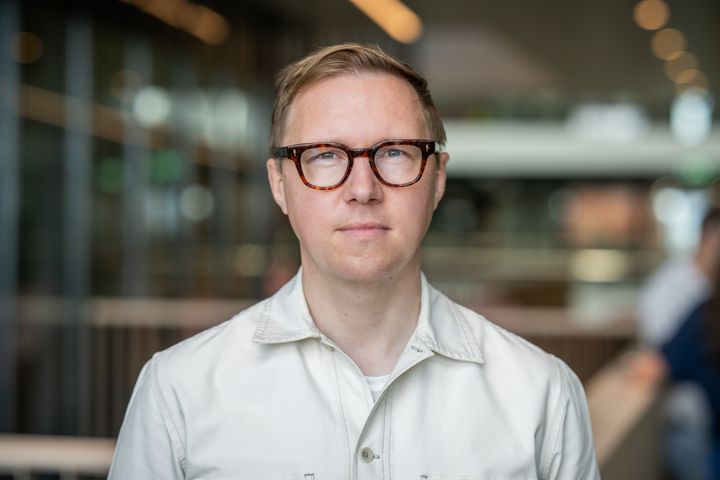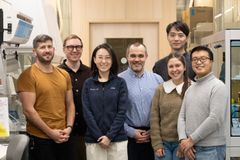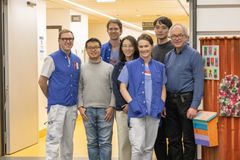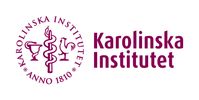New study paves way for immunotherapies tailored for childhood cancers
20.1.2025 17:00:00 CET | Karolinska Institutet - English | Pressmeddelande
Researchers at Karolinska Institutet and the Astrid Lindgren Children’s Hospital in Sweden have determined how children’s immune systems react to different kinds of cancer depending on their age. The study, which is published in the journal Cell, reveals significant differences between the immune response of children and adults, and has the potential to lead to new tailored treatments for children with cancer.

“The activation of the immune system is crucial to our ability to fight cancer, but differs between children and adults,” says Petter Brodin, professor of paediatric immunology at the Department of Women’s and Children’s Health, Karolinska Institutet, and paediatrician at the Astrid Lindgren Children’s Hospital, Karolinska University Hospital. “If we’re to properly treat childhood cancer, we need to find out how the child’s immune system is activated and regulated in children with cancer and what factors affect their immune responses.”
New dimension of precision medicine
The study comprised 191 children between the ages of 0 to 18 who were diagnosed with different types of solid tumours at the Astrid Lindgren Children’s Hospital between 2018 and 2024. The researchers analysed tumour tissue and blood samples to determine the genetic mutations in the tumours and ascertain which genes are and are not active in the immune system.
“Precision medicine in cancer has mostly focused on the tumour properties,” explains Professor Brodin. “By characterising the immune system, we’re introducing an entirely new dimension that will be instrumental in shaping the future of childhood cancer therapy.”
Difference between children and adults
The results show that the immune system of children and adults do not react the same to cancer, and that different tumours activate the immune response to varying degrees.
“What we can see is that children’s tumours are generally less inflammatory and have fewer mutations, which means that they likely appear less foreign to the immune system and that the immune system therefore doesn’t attack the tumours as forcefully,” says Professor Brodin. “Having said this, there are large individual variations, which underlines the importance of precision medicine, which is to say the adapting of treatment to individual patients. Our study shows how this can be done in practice.”
Immunotherapy not suited to children
The results might explain why children do not benefit from immunotherapeutic treatments such as checkpoint inhibitors, a type of biological therapy that makes immune cells more effective against the tumour by blocking the proteins that disengage them.
“This requires the immune cells to be activated against the tumour,” says Professor Brodin. “We show that the child’s immune cells are often initially not activated against the tumour, which means that checkpoint inhibitors won’t work. Children likely need different types of immunotherapies that are more focused on triggering the immune cells to attack the tumour cells from scratch.”
Tracking the child’s immune response
Having tracked the immune response over time and during treatment in some of the children, the researchers were able to measure changes in the population of killer T cells (i.e. the cells whose job it is to kill the tumour).
“This is something that we could make clinical use of today to judge the therapeutic effect and adjust the treatment to every individual patient,” he continues. “We’ll now be testing this on a larger scale as we believe that it can be a useful complement to the genetic analyses of tumours that are already being done in routine care.”
Professor Brodin led the study with Linda Ljungblad, oncology resident and researcher at Karolinska Institutet. The study was conducted in close collaboration with the Astrid Lindgren Children’s Hospital paediatric oncology clinic at Karolinska University Hospital. It was financed by the Swedish Cancer Society, the Swedish Childhood Cancer Foundation, the Swedish Research Council, the Knut and Alice Wallenberg Foundation and Karolinska Institutet. Petter Brodin and two of the other authors are co-founders of Cytodelics AB. Petter Brodin is a member of the Kancera AB executive board and a scientific advisor to Pixelgen Technologies AB, Sention Health AB, Helaina Inc, Scailyte AG and Oxford Immune Algorithmics.
Publication:
“Systems-level immunomonitoring in children with solid tumors to enable precision medicine”, Qi Chen, Binbin Zhao, Ziyang Tan, Gustav Hedberg, Jun Wang, Laura Gonzalez, Constantin Habimana Mugabo, Anette Johnsson, Erika Negrini, Laura Piñero Páez, Lucie Rodriguez, Anna James, Yang Chen, Jaromir Mikes, Anna Karin Bernhardsson, Stefan Markus Reitzner, Ferdinand von Walden, Olivia O’Neill, Hugo Barcenilla, Chunlin Wang, Mark M Davis, Lena-Maria Carlson, Niklas Pal, Klas Blomgren, Dirk Repsilber, Nikolas Herold, Tadepally Lakshmikanth, Per Kogner, Linda Ljungblad, Petter Brodin, Cell, online 20 January 2025, doi: 10.1016/j.cell.2024.12.014.
Kontakter
Petter BrodinDepartment of Women's and Children's Health, Karolinska Institutet, and Astrid Lindgren Children’s Hospital, Karolinska University Hospital.
Tel:+46 8 524 813 96petter.brodin@ki.seBilder



Följ Karolinska Institutet - English
Abonnera på våra pressmeddelanden. Endast mejladress behövs och den används bara här. Du kan avanmäla dig när som helst.
Senaste pressmeddelandena från Karolinska Institutet - English
Blood test reveals risk of multimorbidity7.1.2026 10:00:00 CET | Press Release
A small set of common blood biomarkers predicts which older adults will develop specific combinations of chronic diseases – and how quickly, a new study from Karolinska Institutet published in Nature Medicine reports.
Using social media may impair children’s attention8.12.2025 06:01:00 CET | Press Release
Children who spend a significant amount of time on social media tend to experience a gradual decline in their ability to concentrate. This is according to a comprehensive study from Karolinska Institutet, published in Pediatrics Open Science, where researchers followed more than 8,000 children from around age 10 through age 14.
POTS common in patients with long COVID3.10.2025 11:33:37 CEST | Press Release
A new study from Karolinska Institutet in Sweden shows that an unusual heart rhythm disorder, POTS, is particularly common in people with long COVID. The majority of those affected are middle-aged women. The study is published in the scientific journal Circulation: Arrhythmia and Electrophysiology.
Simple test can predict risk of severe liver disease29.9.2025 09:00:00 CEST | Press Release
A new study from Karolinska Institutet, published in the scientific journal The BMJ, shows how a simple blood analysis can predict the risk of developing severe liver disease. The method may already start to be applied in primary care to enable the earlier detection of cirrhosis and cancer of the liver.
Press invitation: Announcement of the Nobel Prize in Physiology or Medicine 202523.9.2025 13:00:00 CEST | Press Invitation
The Nobel Prize in Physiology or Medicine 2025 will be announced on Monday October 6 at 11.30 am CEST (at the earliest).
I vårt pressrum kan du läsa de senaste pressmeddelandena, få tillgång till pressmaterial och hitta kontaktinformation.
Besök vårt pressrum
